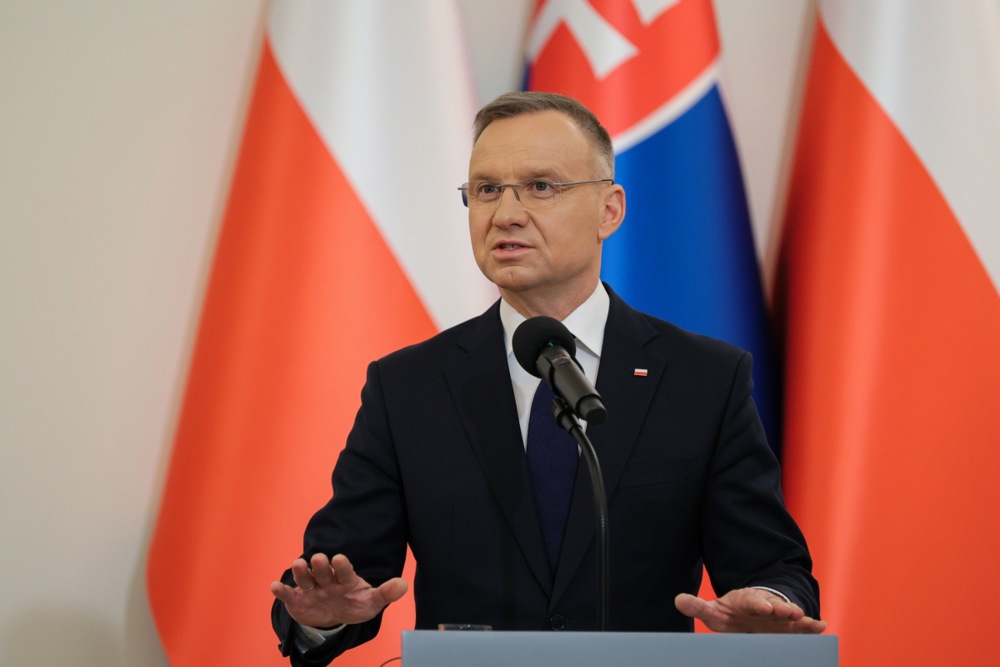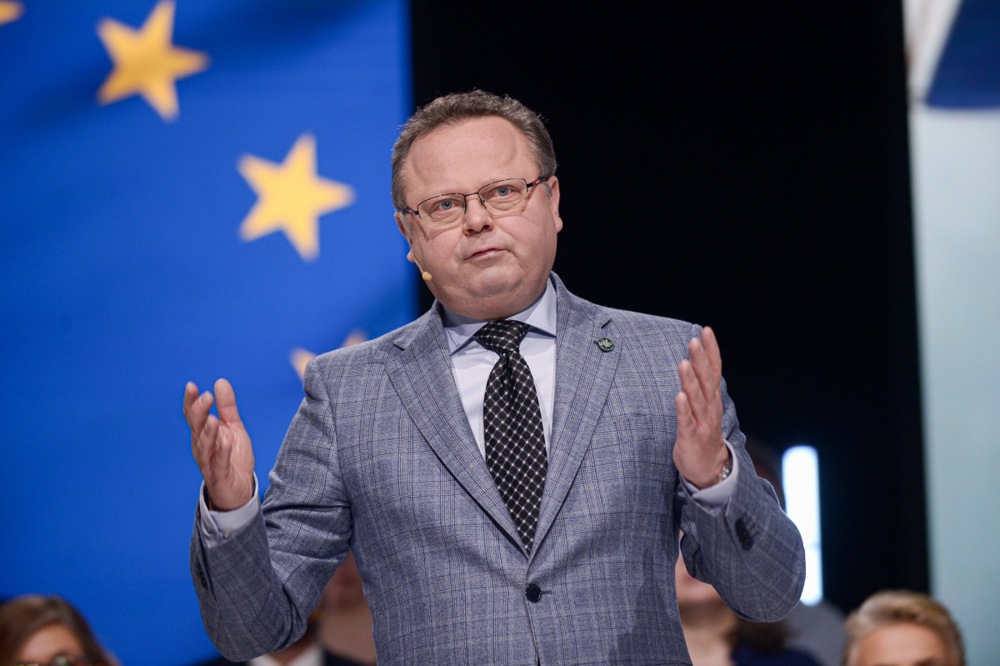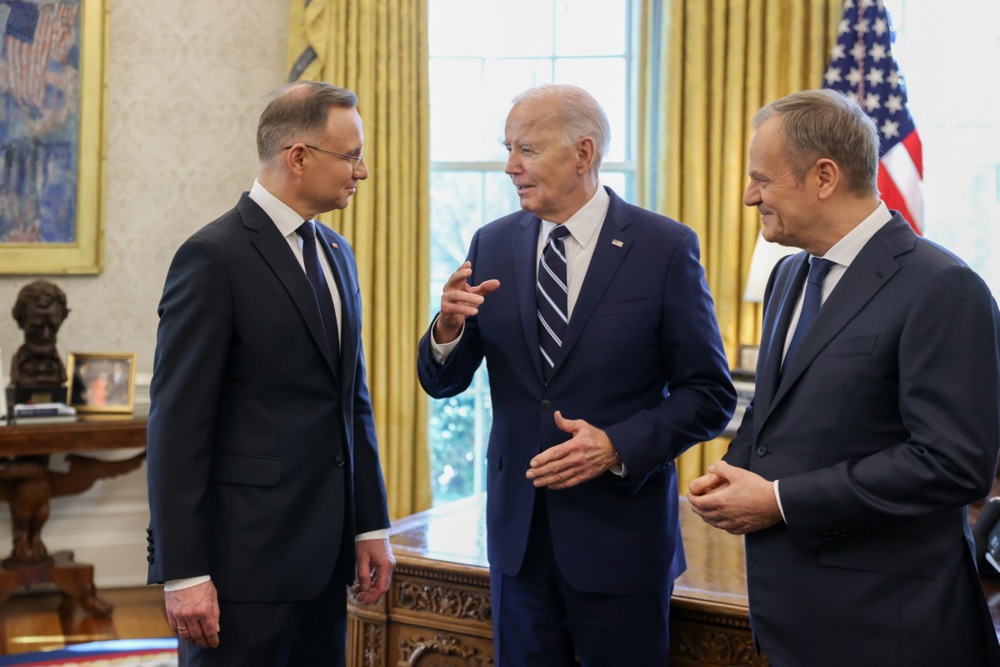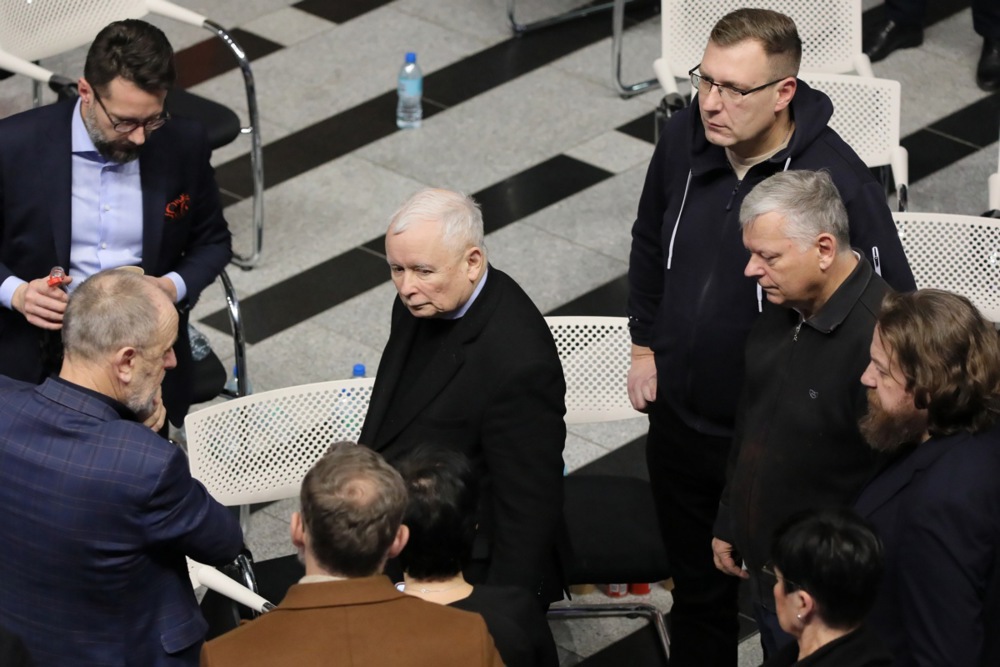The removal of Poland’s ambassador to NATO has sparked infighting in the country, as the political centre-left and centre-right accuse each other of trying to undermine the rule of law.
Donald Tusk’s foreign ministry is reportedly the origin of Ambassador Tomasz Szatkowski’s removal, reportedly acting without the agreement of the country’s president, Andrzej Duda.
Duda had expressly stated he wanted Szatkowski to continue his mission in the run-up to a NATO summit in July.
Despite this, foreign ministry spokesman Paweł Wroński has now confirmed that Szatkowski had been asked to return to Poland as the ministry considered his mission to have “expired”, despite there being no legal limit on the length of diplomatic postings.
The spokesman added that the position would temporarily be operated by the office’s charge d’affaires.
The government now hopes to replace Szatkowski with Jacek Najder, who was the Ambassador to NATO under the last Donald Tusk-led government from 2011-2016. Najder was deputy foreign minister in the days of Poland’s enthusiastic support for former US president Barack Obama’s dealings with Russia.
The affair has been met with outrage from Duda’s office, which has accused the Tusk government of operating without the President’s consent.
Presidential aide Mieszko Pawlak told independent TV channel wPolsce.pl that President Duda, despite the statements made by the foreign ministry, had no intention of recalling Ambassador Szatkowski.
“Ambassador Szatkowski remains Poland’s permanent representative to NATO and he will be in post until the President recalls him,” Pawlak said.
“This situation is absurd since the president has no intention whatsoever of recalling Ambassador Szatkowski just days before a NATO summit.”
With less than two weeks to go before the European Parliament elections, the Polish Government is issuing a raft of indictments against officials from the former ruling Conservatives. https://t.co/MiWc9Q9NOx
— Brussels Signal (@brusselssignal) May 28, 2024
Pawlak also accused the Government of making no attempt to reach any consensus on the ambassadorial changes the current Tusk-led administration proposed.
The head of Duda’s Chancellery, Marcin Mastalerek, meanwhile told the Polish Press Agency (PAP) that since the foreign ministry’s “recall” was not legal, Szatkowski and other ambassadors asked to return remained Polish ambassadors in their relevant countries.
“Tusk’s party is attempting to flex its muscles on the eve of the European elections to show its voters it will pursue [and] try to remove all people associated in any way with the previous government to divert attention from the fact that it is not keeping to the promises it made in the parliamentary elections last autumn,” he said.
He added that any government nominees were just “ambassadors of the KO” — Tusk and Sikorski’s party.
Foreign minister Radosław Sikorski has rejected such claims, insisting that it is he and the government who are in charge of foreign policy, and are therefore in charge of when ambassadors are recalled or appointed.
On May 23, he announced sweeping personnel changes were to be enacted in more than 50 Polish embassies.
It seems likely now that Polish ambassadors asked to return home by the government will be replaced by lower-ranked diplomats to represent the country in around 50 different embassies.
Polish Prime Minister Donald Tusk is reportedly considering a possible ban on his political opponents, a senior figure within his party has claimed. https://t.co/kp4y0ZvhWV
— Brussels Signal (@brusselssignal) May 23, 2024
This latest back-and-forth comes amid controversy surrounding Szatkowski’s past
Civic Platform MP Tomasz Siemoniak responded in parliament, claiming Szatkowski should never have been made an ambassador due to information security services have about him — but he would not reveal what that information was.
Speaking to reporters, another one of Duda’s aides, Wojciech Kolarski, rejected the interior minister’s accusations. He pointed out Szatkowski has served as Ambassador since 2019 and was well respected in NATO circles and that even the present government has not criticized his actions during the posting.
He appealed to the ruling majority to respect the President’s prerogatives and take security policy issues out of the domestic political struggle.
Conservative (PiS) opposition politicians have accused the government of plunging Polish diplomacy into chaos.
“All politicians and diplomats from NATO states who I have spoken to in the last few days are shaking their heads and asking what on earth is happening,” Szymon Szynkowski vel Sęk, the foreign minister under the previous PiS government, told news portal wPolityce.pl
He also argued that the Tusk Government’s actions would weaken Poland’s position internationally, and that he feared the administration’s decision would hinder preparations for the NATO summit.
A migrant attempting to illegally cross the border from Belarus into Poland has been accused of wounding a Polish soldier. https://t.co/ZgBHRWhJ87
— Brussels Signal (@brusselssignal) May 29, 2024





